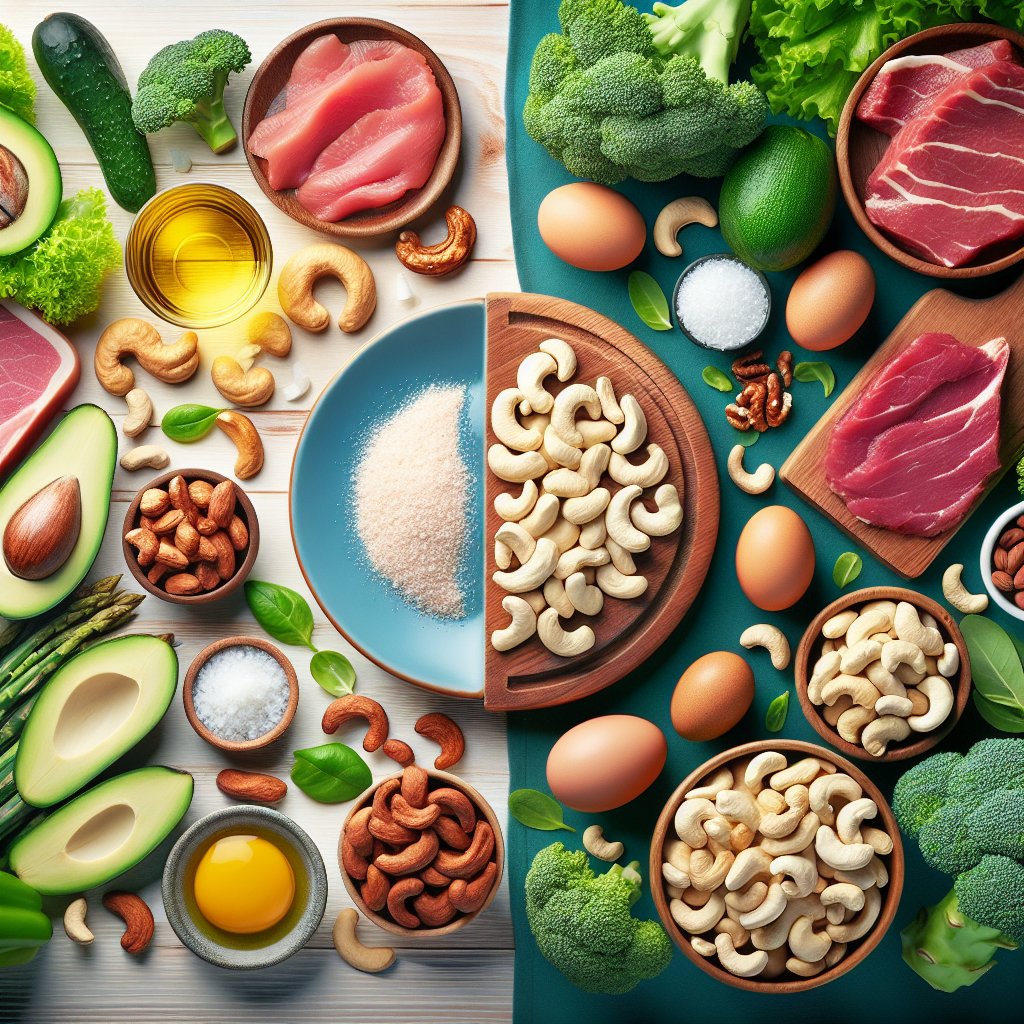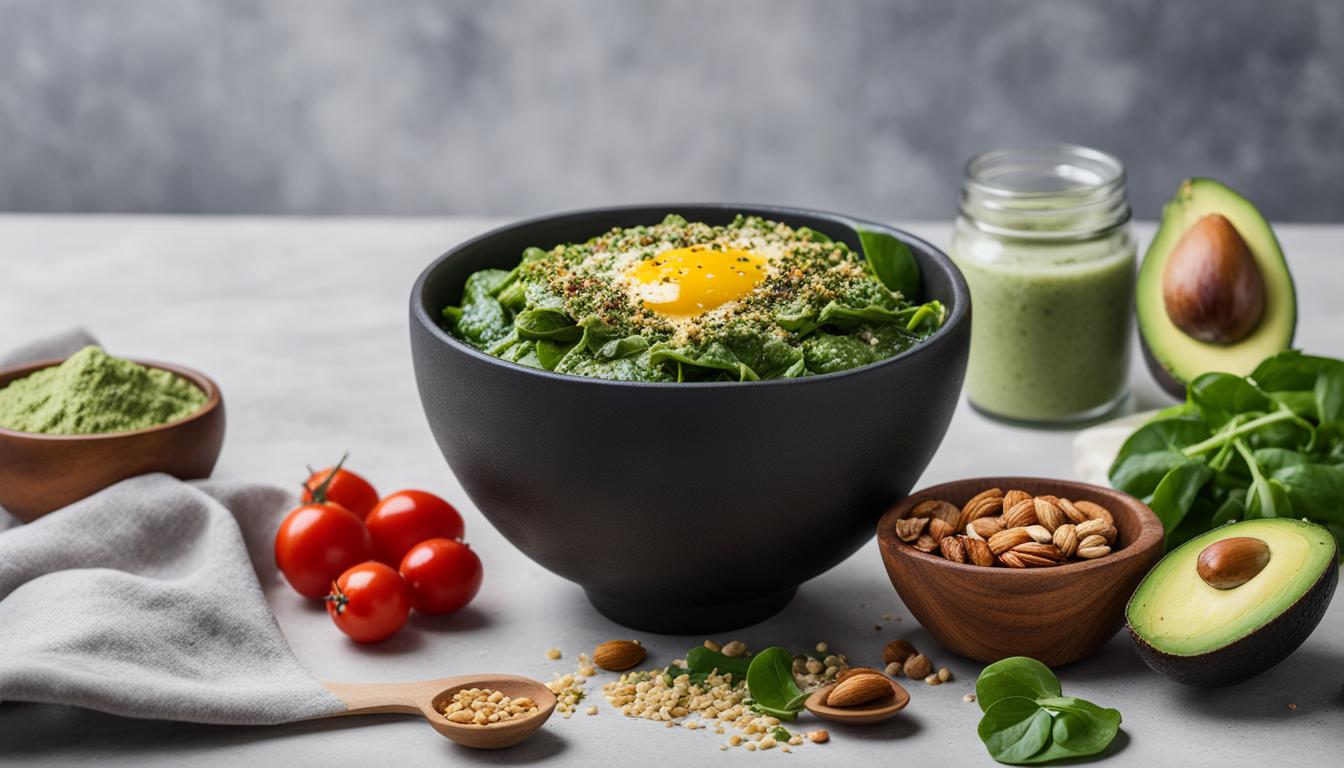Can You Eat Cashews on a Keto Diet? Unveiling the Surging Popularity and Nutritional Benefits of Including Cashews in this Dietary Regimen!
Unveiling the Surging Popularity of the Keto Diet and Cashews
Welcome to our exploration of the intersection between the ketogenic diet and the humble cashew – a journey that delves into the nutrition, the appeal, and the compatibility of cashews with this increasingly popular dietary regimen. The ketogenic diet has garnered zealous followers worldwide due to its potential in weight management and overall health improvement. But what has led to its meteoric rise in popularity? On the other hand, the inclusion of cashews in this low-carb, high-fat diet has sparked a burgeoning interest among health enthusiasts. Let’s dive into the reasons behind the keto diet’s appeal, backed by scientific research, and uncover the growing fascination with integrating cashews into this dietary lifestyle.

What is a Keto Diet?
If you’ve been intrigued by the buzz surrounding the ketogenic, or keto, diet, you’re not alone. This high-fat, low-carb diet has gained popularity for its impressive benefits. But what exactly is the keto diet?
The keto diet is a low-carbohydrate, moderate-protein, and high-fat diet designed to put your body into a metabolic state called ketosis. In this state, your body becomes incredibly efficient at burning fat for energy. By drastically reducing carbohydrate intake and replacing it with healthy fats, your body shifts from using glucose as its primary fuel source to using ketones, which are produced in the liver from fat.
The principles of the keto diet involve consuming high-quality fats, moderate amounts of protein, and minimal carbohydrates. This approach helps stabilize blood sugar levels and insulin sensitivity. Now, you might be wondering, what are the benefits of following a keto diet?
Research has shown that the keto diet not only aids in weight loss but also offers numerous health benefits. Studies have indicated that the keto diet may improve cardiovascular health, optimize blood sugar control, enhance mental clarity, and even support overall energy levels. Moreover, the keto diet has been found to be effective in helping individuals with metabolic syndrome, type 2 diabetes, and neurological disorders.
Nutritional Value of Cashews
Cashews are not only delicious but also packed with essential nutrients that make them a valuable addition to a keto diet. Let’s take a closer look at the impressive nutritional composition of cashews.
Macronutrient Content
Despite being high in fat, cashews are a great source of healthy fats. They are also relatively low in carbohydrates, making them a suitable choice for a keto diet. One ounce (28 grams) of cashews contains around 12 grams of fat, 9 grams of carbohydrates, and 5 grams of protein, making them a macro-friendly option for your ketogenic meal plans.
Micronutrient Profile
In addition to macronutrients, cashews also provide a variety of essential micronutrients. They are rich in important minerals such as copper, magnesium, and phosphorus, which play a crucial role in supporting overall health.
Potential Health Benefits
Research suggests that cashews may offer several health benefits. They are packed with heart-healthy monounsaturated fats and have been associated with improved cardiovascular health. Additionally, the presence of antioxidants in cashews may help reduce inflammation and support the immune system, making them a valuable addition to a balanced diet.
So, can you eat cashews on a keto diet? Absolutely! With their impressive nutritional profile and potential health benefits, cashews can be a wonderful inclusion in your keto meal plans.
Carbohydrate Content in Cashews
Let’s talk numbers! Cashews are undoubtedly delicious, but how do they stack up in terms of carb content for those of us following a keto diet? According to the USDA FoodData Central, a 1-ounce (or approximately 28-gram) serving of cashews contains around 8 grams of total carbohydrates. Out of these, about 1 gram is dietary fiber, leaving us with roughly 7 grams of net carbs.
Now, how does this fit into the carb restrictions of a keto diet? The general rule of thumb for a standard ketogenic diet is to consume no more than 20-50 grams of net carbs per day to stay in ketosis. With cashews, it’s definitely possible to enjoy them in moderation. For instance, if you incorporate a 1-ounce serving of cashews into your daily meal plan, you still have plenty of room to consume other low-carb and high-fat foods throughout the day.
Cashews can be a great choice for a keto-friendly snack or as an addition to a meal, but it’s crucial to be mindful of portion sizes to ensure you stay within your daily carb limit. When enjoyed in moderation, cashews can certainly have a place in a well-planned ketogenic diet without jeopardizing your ketosis state.
Feel free to munch on a few cashews as part of your keto lifestyle, but remember, as with any food on a keto diet, it’s always about moderation and balance.
Can You Eat Cashews on a Keto Diet?
When it comes to a keto diet, it’s crucial to find the right balance of macronutrients, especially when it comes to nuts. Cashews are a popular choice due to their creamy texture and rich flavor, but they are slightly higher in carbs compared to other nuts. However, with the right tips and strategies, you can still include cashews in your keto meal plan while staying within the carb limit.
Tips for Including Cashews in a Keto Meal Plan
1. Portion Control: As with any nut on a keto diet, portion control is key. A single serving of cashews (about 1 ounce) contains roughly 9 grams of carbs, so it’s important to measure out your portions to stay within your daily carb limit.
2. Pair with Low-Carb Foods: To balance out the carb content in cashews, consider pairing them with low-carb foods such as leafy greens, avocados, or even incorporating them into keto-friendly recipes like salads or stir-fries.
3. Use as a Topping: Sprinkle chopped cashews on top of dishes to add a satisfying crunch and flavor without going overboard on carbs.
4. Choose Raw or Dry-Roasted Cashews: Opt for raw or dry-roasted cashews without added oils or sugars to keep the carb count as low as possible.
By incorporating these tips into your keto meal plan, you can enjoy the nutritional benefits and delicious taste of cashews while maintaining ketosis.
Health Benefits of Cashews on a Keto Diet
Hey there, keto enthusiasts! Let’s dive into the specific health advantages of including cashews in your ketogenic diet. These delightful nuts offer a plethora of benefits that make them a fantastic addition to your low-carb lifestyle.
Rich in Healthy Fats
Cashews are packed with heart-healthy monounsaturated fats which have been linked to improved cardiovascular health. Studies have shown that the consumption of monounsaturated fats can lower “bad” LDL cholesterol levels, thus reducing the risk of heart disease and stroke.
Low in Net Carbs
One of the key reasons cashews are a great choice for a keto diet is their low net carb content. Net carbs are the total carbohydrates minus the fiber content, and cashews are relatively low in net carbs, making them suitable for those following a ketogenic lifestyle.
Source of Essential Nutrients
These creamy nuts are also a good source of essential nutrients such as magnesium, which plays a vital role in muscle and nerve function, and copper, an important component of various enzymes involved in energy production. Additionally, cashews contain antioxidants like vitamin E, which help combat oxidative stress in the body.
Including cashews in your keto diet can provide a variety of health benefits, from boosting heart health to supporting overall well-being, making them an excellent choice for a ketogenic lifestyle. So go ahead and enjoy a handful of these delicious nuts as a part of your balanced keto diet!
The Potential Drawbacks of Consuming Cashews on Keto
When it comes to including cashews in your keto diet, it’s important to be mindful of potential pitfalls. While cashews offer numerous health benefits, it’s essential to exercise caution in their consumption to stay within your daily carb limit.
Cashews are deliciously addictive, and it’s easy to overconsume them. A single ounce of cashews contains around 9 grams of net carbs, which can add up quickly if you’re not careful. It’s crucial to weigh and track your portions diligently to prevent exceeding your carb intake for the day.
Additionally, some individuals may experience digestive issues such as bloating or discomfort due to the high fiber content of cashews. Moderation is key – incorporating cashews into your diet in appropriate serving sizes can help mitigate these potential drawbacks.
By being conscious of your portions and balancing them with other low-carb foods, you can enjoy the nutritional benefits of cashews without compromising your keto goals. Remember, moderation is the key to successfully integrating cashews into your ketogenic lifestyle.
Can You Eat Cashews on a Keto Diet?
Conclusion
So, can you eat cashews on a keto diet? The answer is a resounding yes, albeit in moderation. Cashews are nutrient-dense powerhouses packed with healthy fats, proteins, and essential minerals. They can indeed be a valuable addition to a well-rounded ketogenic lifestyle.
In summary, while cashews are higher in carbs compared to other nuts such as macadamias and pecans, they can still fit into a keto diet if consumed mindfully. The key is to be aware of portion sizes and incorporate them into your overall daily macronutrient intake. Research has shown that cashews contain monounsaturated fats, which can have beneficial effects on cardiovascular health and weight management, making them a valuable addition to a keto diet.
Remember, keto is not just about low-carb, high-fat eating – it’s also a lifestyle. So, if you’re craving cashews, go ahead and enjoy a small portion as a snack or as part of a delicious keto-friendly recipe. Just be mindful of your portion sizes and prioritize a balance in your overall diet.
In conclusion, yes, you can absolutely enjoy cashews on a keto diet, just be conscious of your portions and enjoy the nutritional benefits they offer.


